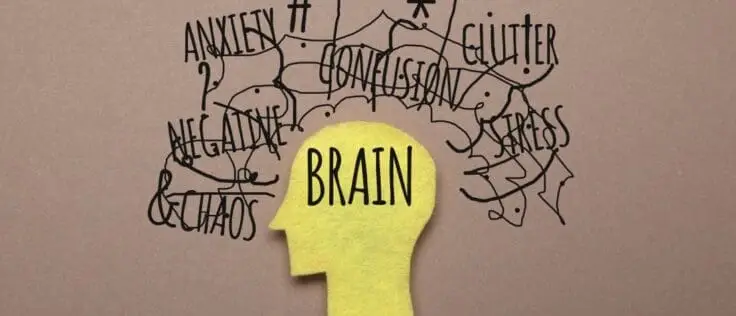Welcome to my comprehensive guide on complex PTSD. In this article, I will explain what complex PTSD is and explore effective strategies for trauma recovery and emotional healing.
Complex PTSD, also known as C-PTSD, is a psychological condition that often develops after experiencing prolonged and repeated traumatic events. It can cause a range of debilitating symptoms, including intense emotional distress, recurring flashbacks, and difficulty regulating emotions. If left untreated, these symptoms can have a significant impact on an individual’s daily life and overall well-being.
But there is hope. With the right support and resources, individuals with complex PTSD can navigate their healing journey and overcome the effects of trauma.
Throughout this guide, I’ll provide insight into the nuances of complex PTSD and share practical strategies for recovery and emotional healing.
Key Takeaways:
- Complex PTSD is a psychological condition that can develop after experiencing prolonged and repeated traumatic events.
- It can cause a wide range of debilitating symptoms, including intense emotional distress, recurring flashbacks, and difficulty regulating emotions.
- With the right support and resources, individuals with complex PTSD can navigate their healing journey and reclaim their lives.
- Effective strategies for recovery may include seeking professional help, engaging in self-care practices, and building supportive relationships.
- Nurturing resilience and developing self-compassion are also important aspects of emotional healing.
What is Complex PTSD?
In this section, I will explain what complex PTSD is, its symptoms, and how trauma triggers can affect individuals with complex PTSD. Complex PTSD, also known as C-PTSD, is a psychological condition that can develop after experiencing prolonged and repeated traumatic events. Unlike traditional PTSD, which typically stems from a single traumatic incident, complex PTSD occurs as a result of ongoing trauma, such as childhood abuse, domestic violence, or captivity.
Individuals with complex PTSD may experience a range of symptoms that can significantly impact their daily lives. According to the National Institute for Mental Health, some common symptoms include:
- Recurring flashbacks or nightmares
- Difficulty regulating emotions or behaviour
- Feelings of shame, guilt, or self-blame
- Changes in self-perception, such as a loss of personal identity
- Difficulty in forming and maintaining relationships
Trauma triggers, such as certain sounds or environments, can elicit strong emotional and physical reactions in individuals with complex PTSD. It’s essential to recognize these triggers to minimize their impact. Triggers can be different for each person; some common triggers include:
- Loud noises or sudden movements
- Physical touch or proximity
- Certain smells or tastes
- Certain places or situations
What are Trauma Symptoms?
In the next section, I will go into more detail about the symptoms of complex PTSD, including how they differ from traditional PTSD symptoms and how they may impact individuals’ daily lives.
Recognising the Symptoms
Recognizing the symptoms of complex PTSD is a crucial step in understanding the condition and developing effective coping mechanisms. The symptoms of complex PTSD can vary from person to person, but common indicators include:
“Hypervigilance, dissociation, feelings of shame or guilt, self-destructive behaviors, and difficulties in forming and maintaining relationships.”
These symptoms can severely impact an individual’s ability to function in their daily life, making it difficult to work, socialize, or even perform basic tasks. For individuals who have experienced childhood trauma, these symptoms may have developed as a way to cope with the traumatic experiences.
Healing from childhood trauma is an ongoing process that involves compassionate and holistic care. Working with a trauma-informed therapist can help individuals identify and address their unique symptoms and develop personalized strategies for healing.
Trauma Recovery and Therapy
When it comes to trauma recovery and complex PTSD, seeking professional help can make a significant difference in the healing process. There are various trauma treatment options available, but the most effective ones typically involve therapy and counselling.
Post-Traumatic Stress Disorder Therapy
Post-traumatic stress disorder (PTSD) therapy, such as cognitive-behavioural therapy (CBT) or eye movement desensitisation and reprocessing (EMDR), can be helpful in addressing specific symptoms of complex PTSD. CBT focuses on identifying and changing negative thought patterns and behaviours related to the trauma. EMDR utilises eye movements to reduce the intensity of traumatic memories and associated distress.
Trauma Counselling
Trauma counselling provides a safe and supportive space for individuals to process their experiences, develop coping mechanisms, and rebuild their sense of self. By working with a qualified therapist who specialises in trauma, you can learn effective strategies for managing symptoms such as anxiety, flashbacks, and dissociation.
Medication
Medication may also be prescribed in conjunction with therapy for complex PTSD. Antidepressants and anti-anxiety medications can help manage symptoms and promote emotional stability. It’s important to work with a qualified healthcare professional to determine if medication is a suitable option for you.
Self-Care and Emotional Healing
When it comes to emotional healing and recovery from complex PTSD, self-care is a vital component. By engaging in activities that promote relaxation and self-awareness, individuals can regulate their emotions and reduce anxiety. Here are some helpful self-care strategies:
- Meditation – This practice can help manage stress and anxiety by promoting a sense of peace and calmness. Find a quiet space and sit in a comfortable position. Close your eyes and focus on your breath, letting go of any intrusive thoughts.
- Exercise – Physical activity can reduce stress and improve mood. Find a form of exercise you enjoy, such as dancing, yoga, or swimming, and incorporate it into your routine.
- Creative pursuits – Engaging in creative activities, such as painting, writing, or playing music, can help process emotions and thoughts in a non-verbal way.
- Support groups – Joining a support group with individuals who share similar experiences can provide a sense of validation and community. Consider joining an online or in-person support group to connect with others.
- Mindfulness practices – Practices such as deep breathing, progressive muscle relaxation, and visualization can help regulate emotions and reduce anxiety.
- Alternative therapies – Practices like yoga, acupuncture, or massage can promote emotional healing and reduce stress.
Remember, self-care is personal, so it’s important to find what works best for you. Prioritizing your well-being and engaging in self-care activities can promote healing and emotional resilience.
Building Supportive Relationships for Healing from Childhood Trauma and Managing Trauma Symptoms
As someone who has experienced the effects of complex PTSD, I know firsthand the importance of building supportive relationships in the healing process. Connecting with understanding friends, family, or support groups can provide a sense of validation and help alleviate feelings of isolation.
However, it’s essential to surround yourself with individuals who respect your boundaries and provide a safe space for open communication. Trust is a crucial component of building supportive relationships, and it’s okay to take time to develop trust with others and protect your boundaries.
One way to cultivate supportive relationships is through joining a support group. These groups provide a space where individuals can connect with others who have similar experiences and offer support without judgment. Online communities also provide opportunities for connection, especially for those who may not have access to in-person support groups.
It’s important to note that healing from childhood trauma and managing trauma symptoms can be a long and challenging journey. It’s okay to reach out to professionals like therapists or counsellors for additional support.
Working with a qualified therapist can help you develop coping mechanisms and address the specific symptoms of complex PTSD. Additionally, therapists can offer insight into building supportive relationships and provide tools for communication and boundary-setting in relationships.
Remember that building supportive relationships is not a one-size-fits-all approach. It’s essential to find individuals who understand and empathize with your experiences and can support you in a way that works best for you.
Self-Reflection Activity: Identifying Your Support Network
- Think about people in your life who have shown you empathy and support in the past.
- List the names of those individuals.
- Consider how you can strengthen those relationships and communicate your needs more effectively.
- If you feel like you need additional support, research local or online support groups or consider reaching out to a therapist or counsellor.
Remember that building supportive relationships is an integral part of healing from childhood trauma and managing trauma symptoms. Seeking support from trusted individuals and professionals can help you feel validated, understood, and empowered in your healing journey.
Managing Trauma Triggers
Learning to manage trauma triggers is a crucial aspect of coping with complex PTSD. Trauma triggers are external or internal stimuli that can elicit strong emotional and physical reactions in individuals with complex PTSD. Identifying specific triggers and developing personalized strategies to navigate them can help reduce the impact of triggering situations.
Identifying Trauma Triggers
Identifying trauma triggers involves paying close attention to physical and emotional reactions during triggering events. Common trauma triggers include certain sounds, smells, sights, or environments that remind individuals of their traumatic experiences. Internal triggers, such as memories or thoughts related to the trauma, can also elicit strong emotional responses. It is important to develop a clear understanding of your unique triggers to effectively manage them.
Personalised Strategies for Managing Trauma Triggers
Personalized strategies for managing trauma triggers depend on individual preferences and reactions. Some effective techniques include:
- Grounding exercises: Focus on the present moment by using your senses to connect with your surroundings. For example, identify five things you can see, four things you can touch, three things you can hear, two things you can smell, and one thing you can taste.
- Deep breathing: Slowly inhale through your nose, hold for a few seconds, and exhale through your mouth. Repeat several times until you feel calmer.
- Self-soothing techniques: Engage in activities that promote relaxation, such as taking a warm bath, listening to calming music, or engaging in creative pursuits.
- Avoidance: If possible, avoid triggering situations or environments altogether.
Working with a therapist can provide additional tools and support in managing trauma triggers and their associated symptoms. Cognitive-behavioral therapy (CBT) and exposure therapy are evidence-based interventions that can help individuals build resilience and effectively manage their triggers.
Managing trauma triggers is an essential aspect of coping with complex PTSD. Identifying specific triggers and developing personalized strategies to navigate them can help reduce the impact of triggering situations. It is important to work with a qualified therapist to develop an individualized treatment plan that addresses your unique needs and challenges.
Seeking Professional Help for Complex PTSD
If you’re experiencing symptoms of complex PTSD, seeking professional help is an essential step towards your recovery. While self-care and support networks are valuable tools, professional guidance provides specialized knowledge and expertise in trauma recovery. A qualified therapist, counsellor, or psychiatrist trained in trauma treatment options can offer evidence-based interventions, including medication if necessary, to support your healing journey. Remember, you don’t have to navigate complex PTSD alone, and seeking professional help is a proactive step towards your overall well-being.
Why Seek Professional Help?
Professional help is crucial for individuals with complex PTSD because the condition can be challenging to manage without the proper support and guidance. A qualified therapist can help you develop effective coping mechanisms, navigate trauma triggers, and address the underlying causes of your symptoms. In addition, professional help can provide a safe and supportive space for you to process your experiences, develop self-compassion, and rebuild your sense of self. Without proper treatment, the symptoms of complex PTSD can worsen, leading to long-term effects on your mental and physical health.
Types of Trauma Treatment Options
There are several trauma treatment options available for individuals with complex PTSD. Cognitive-behavioural therapy (CBT), eye movement desensitization and reprocessing (EMDR), and dialectical behaviour therapy (DBT) are evidence-based approaches that have shown promise in managing the specific symptoms of complex PTSD. Trauma-focused counselling provides a safe space for individuals to process their experiences and develop effective coping mechanisms. It’s important to work with a qualified therapist who specializes in trauma to ensure the most effective treatment for your needs.
Alternative Trauma Treatment Options
Alternative therapies can also be valuable in healing from childhood trauma and managing complex PTSD. Practices like art therapy, music therapy, equine-assisted therapy, and nature-based therapies have shown promise in promoting emotional healing and empowering individuals to express their experiences in non-verbal ways. Exploring different treatment options can help you find the approach that resonates with you and complements your overall healing process.
Exploring Alternative Therapies for Healing from Childhood Trauma and Managing Complex PTSD
While traditional therapy approaches, medication, and self-care practices can be effective in managing complex PTSD, individuals may also benefit from exploring alternative therapies. These therapies offer unique approaches to emotional healing and may resonate with people who prefer non-verbal or creative forms of expression. Here are some alternative therapies to consider:
- Art Therapy: Art therapy involves using art materials, such as paint, clay, or collage, to express emotions and process traumatic experiences. The focus is on the creative process rather than the final product, and it can provide a safe and non-judgmental space for self-expression.
- Music Therapy: Music therapy involves using music to promote emotional, cognitive, and physical healing. It can involve listening to music, playing instruments, or writing music, and it can enhance self-awareness, self-expression, and coping skills.
- Equine-Assisted Therapy: Equine-assisted therapy involves working with horses to promote emotional healing and personal growth. It can involve activities such as grooming, leading, or riding horses and can provide a sense of connection, trust, and empowerment.
- Nature-Based Therapies: Nature-based therapies involve connecting with nature as a way to promote emotional healing and reduce stress. It can involve activities such as gardening, hiking, or wilderness therapy and can provide a sense of grounding, relaxation, and connection to something larger than oneself.
Exploring alternative therapies can provide a renewed sense of hope and empowerment in the healing process. Working with a qualified therapist or practitioner specialising in alternative therapies can help you find the best approach for your unique needs.
The Role of Self-Compassion in Emotional Healing and Trauma Recovery
Developing self-compassion is a crucial aspect of emotional healing and trauma recovery. When dealing with complex PTSD, it can be easy to fall into self-blame and negative self-talk. However, practising self-compassion involves treating oneself with kindness, understanding, and acceptance. It is about acknowledging that the experiences you have endured were not your fault and that you deserve healing and love.
One way to practice self-compassion is through positive self-talk. This involves challenging negative self-perceptions and replacing them with positive affirmations. For example, rather than telling yourself, “I am broken and damaged,” you can say, “I am a survivor and am worthy of love and healing.”
Self-care is another critical aspect of self-compassion. Engaging in activities that promote relaxation and well-being, such as meditation, exercise, and creative pursuits, can help regulate emotions and reduce anxiety. It is essential to prioritize self-care and to find a combination of practices that work best for you.
Challenging self-judgment and developing self-compassion can be a difficult journey, but it is one that is worth taking. Research shows that self-compassion is strongly associated with emotional well-being and resilience. By practising self-compassion, individuals can cultivate a sense of self-worth and self-confidence that can aid in the healing process.
The Three Elements of Self-Compassion:
According to Dr. Kristin Neff, a leading expert on self-compassion, there are three essential elements of self-compassion:
- Self-kindness: Being kind and understanding towards oneself, especially in times of pain or difficulty.
- Common humanity: Recognizing that suffering is a part of the human experience and that others have gone through similar struggles.
- Mindfulness: Approaching one’s thoughts and feelings with an open and non-judgmental attitude.
By embodying these three elements, individuals can develop a sense of self-compassion that can guide them on their healing journey. Remember, emotional healing and trauma recovery are not easy processes, but with self-compassion and patience, they are achievable.
Nurturing Resilience
As someone who has experienced complex PTSD, I understand that the healing journey can be challenging. However, nurturing resilience can empower you to overcome those challenges and continue moving forward.
One way to nurture resilience is by developing healthy coping mechanisms. This can include practices such as mindfulness meditation, deep breathing exercises, or engaging in physical activity. By learning to regulate your emotions and manage stress, you can build a stronger foundation for emotional healing and trauma recovery.
Setting realistic goals is another way to nurture resilience. Start small and celebrate each accomplishment along the way. By breaking down big goals into manageable steps, you can build confidence in your ability to achieve your objectives.
Engaging in meaningful relationships can also contribute to nurturing resilience. Connecting with supportive friends, family members, or a therapist can provide a sense of validation and help alleviate feelings of isolation. It’s important to communicate openly and honestly with those around you and to set boundaries that protect your well-being.
Cultivating a positive mindset is another key aspect of nurturing resilience. By challenging negative self-perceptions and reframing your thoughts in a more positive light, you can build self-confidence and resilience in the face of adversity.
Remember, nurturing resilience is an ongoing process that requires time and effort. By incorporating these practices into your daily life, you can build a strong foundation for emotional healing and trauma recovery.
So, take a deep breath, believe in yourself, and take the next step forward on your healing journey.
As we come to the end of this guide, I hope you have gained a deeper understanding of complex PTSD and its impact on those who experience it. Remember that complex PTSD is a treatable condition and effective trauma recovery is possible through seeking professional help, implementing self-care strategies, and building supportive relationships.
Recognizing the symptoms of complex PTSD and seeking trauma treatment options like therapy or counselling can aid in addressing trauma symptoms. Incorporating self-care practices like mindfulness and alternative therapies like art therapy or equine-assisted therapy can promote emotional healing and have a positive impact on overall well-being.
Developing self-compassion and nurturing resilience can empower one to overcome challenges and continue on their healing journey. Remember that recovery is an ongoing process, and it is essential to prioritize your well-being and seek support when needed. With the right resources and support, it is possible to thrive beyond trauma.
FAQ
What is Complex PTSD?
Complex PTSD, also known as C-PTSD, is a psychological condition that can develop after experiencing prolonged and repeated traumatic events. Unlike traditional PTSD, which typically stems from a single traumatic incident, complex PTSD occurs as a result of ongoing trauma, such as childhood abuse, domestic violence, or captivity.
What are the symptoms of Complex PTSD?
Common symptoms of Complex PTSD include hypervigilance, dissociation, feelings of shame or guilt, self-destructive behaviours, and difficulties in forming and maintaining relationships. Trauma triggers, such as certain sounds or environments, can elicit strong emotional and physical reactions in individuals with Complex PTSD.
How can I recognise the symptoms of Complex PTSD?
Recognizing the symptoms of Complex PTSD is crucial for understanding and addressing the condition. Look out for signs of hypervigilance, dissociation, feelings of shame or guilt, self-destructive behaviours, and difficulties in forming and maintaining relationships. Trauma triggers can also indicate the presence of Complex PTSD.
What is the role of therapy in Trauma Recovery?
Trauma recovery and therapy play a vital role in helping individuals with Complex PTSD navigate their healing journey. Post-traumatic stress disorder (PTSD) therapy, such as cognitive-behavioural therapy (CBT) or eye movement desensitization and reprocessing (EMDR), can be effective in addressing the specific symptoms of Complex PTSD. Trauma counselling provides a safe and supportive space for individuals to process their experiences, develop coping mechanisms, and rebuild their sense of self.
How can I engage in self-care and promote emotional healing?
Engaging in activities that promote relaxation, such as meditation, exercise, and creative pursuits, can help regulate emotions and reduce anxiety. Seeking out trauma treatment options such as support groups, mindfulness practices, and alternative therapies like yoga or acupuncture can also contribute to emotional healing. It’s essential to find a combination of self-care practices that work best for you and prioritize your well-being.
How can I build supportive relationships to aid in healing from childhood trauma?
Healing from childhood trauma often involves building supportive relationships that foster understanding and empathy. Connect with understanding friends, family, or support groups to provide a sense of validation and help alleviate feelings of isolation. Surround yourself with individuals who respect your boundaries and provide a safe space for open communication. Building healthy relationships can aid in addressing and managing the symptoms of Complex PTSD.
How can I manage trauma triggers?
Learning to manage trauma triggers is a crucial aspect of coping with Complex PTSD. Identify specific triggers and develop personalized strategies to navigate them, such as grounding exercises, deep breathing, and self-soothing techniques. Working with a therapist can provide additional tools and support in managing trauma triggers and their associated symptoms.
When should I seek professional help for Complex PTSD?
Seeking professional help is essential for individuals with Complex PTSD. While self-care and support networks are valuable, professional guidance provides specialized knowledge and expertise in trauma recovery. Therapists, counsellors, and psychiatrists trained in trauma treatment options can offer evidence-based interventions, including medication if necessary, to support your healing journey.
What are the alternative therapies for healing from childhood trauma?
In addition to traditional therapy approaches, alternative therapies can be valuable in healing from childhood trauma and managing Complex PTSD. Practices like art therapy, music therapy, equine-assisted therapy, and nature-based therapies have shown promise in promoting emotional healing and empowering individuals to express their experiences in non-verbal ways. Explore different treatment options to find the approach that resonates with you and complements your overall healing process.
How important is self-compassion in trauma recovery?
Developing self-compassion is an integral part of emotional healing and trauma recovery. Complex PTSD often leads to self-blame and feelings of inadequacy. Practising self-compassion involves treating oneself with kindness, understanding, and acceptance. Engage in positive self-talk, practice self-care, and challenge negative self-perceptions to foster self-compassion and contribute to overall healing.
How can I nurture resilience in the face of Complex PTSD?
Nurturing resilience is an ongoing process that enables individuals to bounce back from adversity and continue their journey of healing from Complex PTSD. Develop healthy coping mechanisms, set realistic goals, engage in meaningful relationships, and cultivate a positive mindset. Nurturing your resilience can empower you to overcome challenges and thrive despite the effects of Complex PTSD.
How can I effectively recover from Complex PTSD?
In conclusion, understanding Complex PTSD is a crucial step towards effective trauma recovery and emotional healing. By recognizing the symptoms, seeking professional help, and implementing self-care strategies, individuals can navigate their healing journey with resilience and compassion. Remember, Complex PTSD does not define you, and with the right support and resources, it is possible to reclaim your life and thrive beyond trauma.






